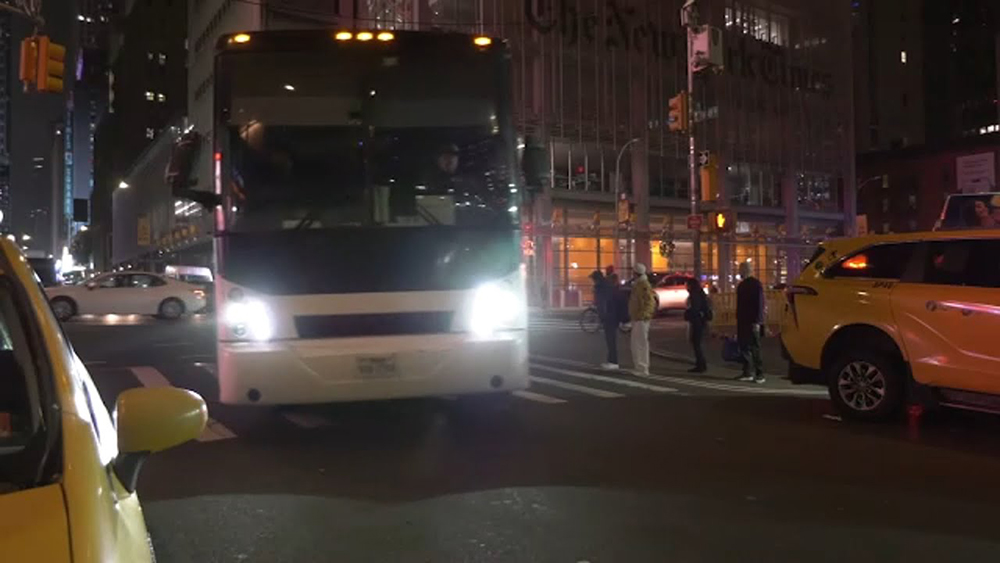|
Getting your Trinity Audio player ready...
|
Edited by: TJVNews.com
Mayor Eric Adams’ ambitious $700 million lawsuit against 17 bus companies that transported over 33,000 migrants to New York City has been dismissed by a Manhattan judge. According to a report in the New York Post, the lawsuit, which sought to halt the influx of migrants from Texas, was ruled “dubious at best” and “unconstitutional” by Manhattan Supreme Court Judge Mary Rosado.
Filed in January, the lawsuit aimed to address the surge of migrants bused from Texas to New York City. The city accused the bus companies of violating an old statute designed to prevent people from being transported to New York to become public charges, as was reported by The Post. However, Judge Rosado’s decision highlighted significant constitutional issues with the case, particularly in relation to the Interstate Commerce Clause.
“This is a plain attempt to regulate the transportation of indigent persons from State to State in violation of the Interstate Commerce Clause,” Judge Rosado stated in her ruling on Monday, The Post report indicated. The judge emphasized that the core of the lawsuit relied on a 19th-century “pauper’s statute,” which the U.S. Supreme Court had already deemed unconstitutional over 80 years ago.
The lawsuit referenced an 1817 statute that aimed to prevent individuals from being brought to New York with the intention of making them public charges. However, this legal basis was fundamentally flawed. According to the information provided in The Post report, Judge Rosado pointed out that the Supreme Court had ruled against a similar California law in 1941, declaring it unconstitutional. “The Court finds that it cannot grant the Commissioner’s request for injunctive relief as the merits of her claim are dubious at best given myriad constitutional concerns,” Rosado wrote.
Despite the dismissal, City Hall’s chief legal counsel, Lisa Zornberg, expressed respect for the court’s ruling during a Tuesday press conference. However, Zornberg defended the lawsuit’s intentions, asserting that the statute in question had not been explicitly ruled on regarding its constitutionality, as per The Post report. “That lawsuit that we brought, which I’m very proud of, was really about using every tool in New York City’s toolbox to protect New York City’s social service system and New Yorkers,” Zornberg stated.
The dismissal of this lawsuit raises significant questions about the legal strategies employed by New York City in addressing the influx of migrants. The ruling underscores the complexities of using outdated statutes to tackle contemporary issues and the importance of ensuring legal arguments align with current constitutional interpretations.
Robert Hantman, an attorney representing the bus companies, praised Judge Rosado for her objective and impartial decision. “The Judge is to be applauded for her objectivity and integrity in following the law and ignoring political considerations,” Hantman told The Post. His comments underscore the legal community’s respect for a ruling that strictly adhered to constitutional principles over political pressures.
Mayor Adams’ administration accused the bus companies of violating state law by not covering the costs of caring for the transported migrants. The city sought to recover approximately $700 million already spent over the past two years to accommodate these individuals, as was explained in The Post report. “These companies have violated state law by not paying the cost of caring for these migrants, and that’s why we are suing,” Adams stated when the lawsuit was filed.
Judge Rosado’s ruling emphasized the constitutional limitations on state powers regarding interstate travel. She warned that the city’s demands would create an unconstitutional “chilling” effect on interstate travel.





